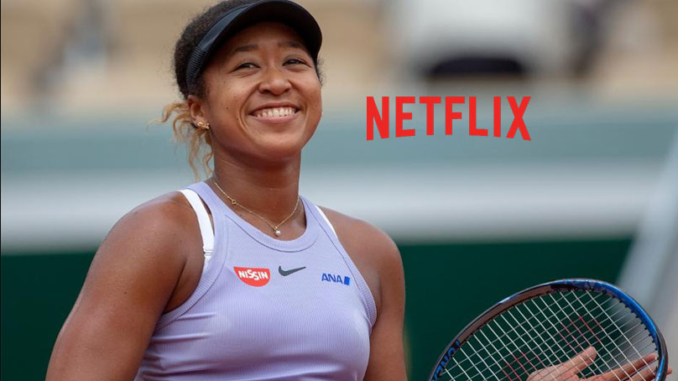
Review of Naomi Osaka’s Netflix Documentary: A Deep Dive into the Life of a Tennis Icon
Naomi Osaka’s Netflix documentary, Naomi Osaka, released in 2021, provides a unique, intimate look into the life and career of one of the most influential and groundbreaking athletes of our time. Directed by Garrett Bradley, the series goes beyond the typical sports documentary format. It offers a compelling, multifaceted portrayal of Osaka, both as a tennis player and as a person navigating complex personal and cultural identity struggles.
A Personal Story Beyond Tennis
One of the most striking aspects of the documentary is its focus on Osaka’s inner world. The series opens with her confronting the pressures and the noise surrounding her career, notably the expectations from her fans and sponsors. Osaka’s transparency about her mental health struggles adds a raw, personal dimension to the documentary that separates it from the typical athlete profile. There are moments of vulnerability where the viewer can sense her internal conflict: she wants to honor her Japanese-Haitian heritage, break barriers in tennis, but also desires to live a more private life.
The documentary is not solely a retelling of her triumphs on the tennis court; instead, it explores her emotional journey through moments of doubt, anxiety, and growth. The series is deeply personal, as it follows Osaka during key moments in her career, including her 2020 US Open victory, and the public struggles she faced in dealing with the pressure of being one of the sport’s leading faces. Osaka herself narrates much of the documentary, providing candid reflections that shed light on her private life. Her insight into the intersection of her identity and success as a mixed-race athlete gives the audience a more comprehensive understanding of her complex character.

Navigating Identity and Cultural Pressure
Naomi Osaka is one of the few tennis stars who carries the weight of being a biracial athlete, which brings its own set of challenges. Raised in Japan with a Haitian father and Japanese mother, Osaka’s identity has often been the subject of scrutiny, both within her sport and the media. Throughout the documentary, Osaka reflects on the unique pressure of being considered “other” in Japan, where racial and cultural identity are often more rigidly defined.
The documentary sensitively explores Osaka’s evolution in confronting these cultural dynamics. It shows her struggle to be accepted by the Japanese public, who expected her to be a “perfect” representative of the country. This cultural tension is evident in her mixed emotions about representing Japan on the global stage. The documentary captures key moments when Osaka is forced to navigate this landscape, including her decision to take a stand on social justice issues, such as the Black Lives Matter movement, during the 2020 US Open.
Osaka’s reluctance to be pinned down to any one identity is also clear throughout the series. She doesn’t want to be confined to being simply a “Japanese” athlete or a “Haitian” athlete. Her decision to embrace a more global identity that combines both cultures—without feeling the need to fit neatly into either—makes her journey particularly relatable for anyone grappling with their own sense of identity.
Mental Health and Athlete Well-being
A pivotal theme of the documentary is Osaka’s emphasis on mental health, particularly the emotional toll of being a high-profile athlete. In 2021, Osaka took a stand by withdrawing from the French Open due to the mental and emotional strain of press conferences, revealing a vulnerability that is rarely seen in top athletes. The documentary touches on this decision and the backlash she faced, while also emphasizing the importance of maintaining mental well-being.
The series illustrates the tension between Osaka’s public life and private battles. We see how she faces the constant scrutiny of her personal choices and the public’s desire for her to remain strong, even when she is fragile. Osaka’s openness about her mental health struggles, particularly her anxiety around media appearances, resonates with a wider audience and has sparked important conversations about the mental health of athletes.
The Role of Tennis and the Importance of Family
Tennis remains the center of Osaka’s world, and the documentary does not shy away from showcasing her dedication to the sport. We witness her training sessions, her relationship with coaches, and her unyielding drive to improve and win. Despite her struggles, Osaka remains deeply committed to tennis. But what is equally important in the documentary is the role of family, particularly her relationship with her father, Leonard Francois, and her sister, Mari.

Leonard Francois, who is portrayed as an integral figure in Osaka’s career, is a guiding force. His influence on her work ethic and his role in introducing her to tennis are pivotal in understanding how Osaka’s journey unfolded. Their bond is heartwarming and provides a sense of the strong family foundation that supports Osaka through her trials and triumphs. The series also highlights how Osaka relies on her sister Mari, who provides a sense of normalcy and stability outside of the spotlight.
A Modern Portrait of an Athlete
Ultimately, Naomi Osaka on Netflix serves as more than just a documentary about an athlete’s journey to the top. It’s a nuanced, layered look at a young woman grappling with fame, cultural expectations, personal challenges, and mental health. In portraying her life beyond the headlines, the series offers a deeper understanding of what it means to be a modern athlete in the public eye. Osaka’s ability to remain authentic while balancing the intense pressure of being a role model provides inspiration to viewers worldwide.
Through its candid portrayal of Osaka’s life and career, the documentary succeeds in painting a portrait of an athlete who is not just defined by her victories on the court, but by her humanity, struggles, and resilience. The series is a must-watch for anyone interested in understanding the pressures facing today’s top athletes and offers a fresh perspective on one of the most compelling figures in modern sports.
Naomi Osaka seals huge rankings breakthrough as she ends 1,008-day wait for WTA final
Netflix set to premiere
Naomi Osaka will return to the top 5o of the WTA Rankings after reaching her first WTA final in three years at the Auckland Open.
Producing arguably her best performance of the week, the former world No 1 defeated Alycia Parks 6-4, 6-2 to make her first final since welcoming her daughter in July 2023.

Osaka was broken just once throughout the contest, breaking her American opponent four times across an hour and 11 minutes of action.
“I’m happy to get through to the final,” said seventh seed Osaka in her on-court interview. “I’ve actually never gotten to the final of a tournament the week before Melbourne [Australian Open].
“This is a career first for me. I think in my head I’m really happy there are always things to improve and get better, no matter how old you are.
“She [Parks] was hitting such amazing shots. I kept thinking to myself: ‘Give her one more ball to play – try to get lucky’.
“I know there was one net cord ball that I really needed, so I’m really sorry to her but I really needed that. I just tried to focus on my serve and kept pushing.”
It will be Osaka’s first WTA final in 1,008 days since she reached the final of the 2022 Miami Open – where she was beaten by Iga Swiatek.
Should the Japanese defeat fifth seed Clara Tauson in Sunday’s final, she would win her eighth WTA title and her first since triumphing at the 2021 Australian Open almost four years ago.
Osaka was ranked 57th heading into the WTA 250 event following a solid, if unspectacular, return to action post-maternity leave in 2024.
However, by reaching her 12th career singles final, the 27-year-old is set to return to the top 50 of the WTA Rankings.

Osaka is currently 49th on the WTA Live Rankings, holding 1,145 ranking points following her victory over Parks on Saturday.
Should Osaka lose Sunday’s final to Tauson and Polina Kudermetova defeat Aryna Sabalenka in the Brisbane International final, the Japanese would drop back one place and be ranked 5oth on Monday.
However, should the four-time Grand Slam champion defeat her Danish opponent in Auckland, she would hold 1,232 ranking points and provisionally move up to world No 42.
Win or lose, Osaka’s run in Auckland bodes well as she looks to rise back towards the top of the sport in 2025.

The Japanese had her fair share of near-misses in 2024 – most notably her French Open loss to Iga Swiatek – and saw her season end early due to a back injury sustained at the China Open.
However, win or lose on Sunday, the signs are promising for the Japanese over the next 12 months.
Leave a Reply